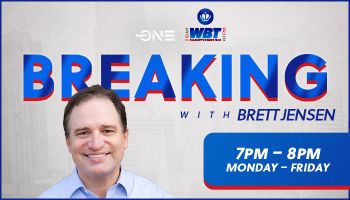
Source: Barry Lewis / Getty
Utah Governor Spencer Cox has signed a bill requiring all cellphones and tablets sold in the state to block pornography.
Supporters of the legislation say it’s important to prevent children from having access to the explicit content. Especially since more minors have ways to access to online sources. While critics of Cox are calling the measure a divisive move against free speech protected under the first amendment.
There are no plans for Utah to implement the law; unless five other states take similar actions—a provision introduced and adopted during debate of the bill, according to AP News. If no other state joins Utah by 2031, the bill expires off-the-books without seeing the light of day. However, outside of the ten-year window, the ACLU of Utah said the constitutionality of the bill will likely be challenged in court.
“This is another example of the Legislature dodging the constitutional impacts of the legislation they pass,” ACLU attorney Jason Groth said in a statement.
This isn’t the first time for Utah lawmakers, who are predominantly members of The Church of Jesus Christ of Latter-day Saints, to rage a fight against access to porn. In 2016, they were the first state to mandate warning labels on print and online pornography and declared the adult content a “public health crisis.”
As one of the biggest entities in the state, Mormon leaders have also drawn attention to what they consider the harms of pornography. The former self-proclaimed Prophet of the LDS Church, Gordon B Hinkey, said “(Pornography) is like a raging storm, destroying individuals and families, utterly ruining what was once wholesome and beautiful” in a 2004 address.
Adults can deactivate the porn filters set on devices, but experts said it still raises several legal concerns. According to the language in Utah HB 72, the filters on all smartphones and tablets will be loosely-enforced.
“Phone manufacturers would provide a passcode to let buyers disable the filter, although it’s not clear if they’d need to verify the buyer’s age beforehand. If a filter isn’t automatically enabled when a user activates the device, its manufacturer can be held legally liable if a minor accesses harmful content, with a maximum fine of $10 per individual violation ($500 maximum). (“Harmful” content can include “any description or representation” of nudity or sexual conduct that doesn’t have artistic, political, or scientific value for minors.)”
The US Supreme Court struck down the Communications Decency Act, which banned making indecent materials available to minors, in 1997. Child filters can block unintended material, but also devices blocking large swathes of content may not fly in a court challenge.








